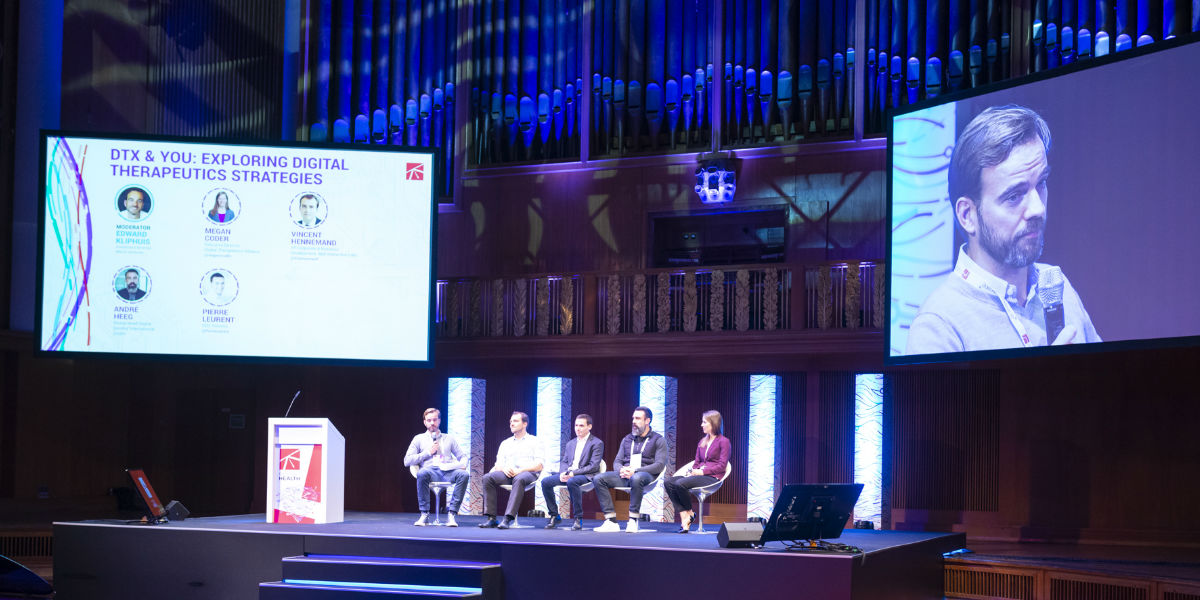
How do you introduce your fund? What is your elevator pitch?
M Ventures backs exceptional science and tech entrepreneurs to deliver outstanding results. We are the investment arm of Merck KGaA, one of the most innovative global science and tech companies. M Ventures invests from four evergreen funds, with a total of 300 million euros of assets under management. We’re looking for early stage investments driven by great entrepreneurs with bold ideas that target big problems. We’re passionate, supportive investors focussed on success for all stakeholders, and we place a particular emphasis on being founder-friendly investors. We have a tremendous global network across the whole science and technology field, which gives us access to great talent, entrepreneurs and co-investors. As such, we offer portfolio companies pro-active support in areas ranging from product development and business development to recruiting talent. We have a proven track record for developing transformative science and technology as well as delivering an outstanding return on capital.
What kind of investment targets do you seek?
We have a global mandate, so we are privileged to invest in the best of the best from the US to Europe and to China. The M Ventures New Businesses fund invests in areas beyond Merck’s existing business sectors, such as healthtech, foodtech and agtech. We aim to invest in Seed-, Series-A and/or Series-B stages for the initial investment, and we continue to support our portfolio companies through all stages.
How can a company best approach you?
Just send me an email at Edward.kliphuis@m-ventures.com, or come and see us in Amsterdam!
What do you see as digital healthcare’s biggest challenges looking into 2019?
One of the major challenges for the healthtech sector in the near term will be delivering on the promises: a lot of money has poured into the sector in recent years on the back of promises of disruption, but tangible successes have been limited. One of the key reasons is that traditional tech strategies don’t work in healthcare: a quick push for an MVP isn’t suitable in a complex and regulated industry. Thus, success must be determined by getting the need right, designing innovative solutions that address stakeholders’ top priorities, and then demonstrating that a product provides better results. Doctors and insurers are gatekeepers to healthcare technology adoption, meaning that (clinical) validation is needed to unlock adoption by these gatekeepers. It is encouraging to see that entrepreneurs and investors in our space are embracing these dynamics. We believe that a focus on the execution of the fundamental premise of improving patient outcomes is key.
What is the biggest change in the investment climate in digital healthcare?
In addition to ever increasing interest from traditional tech and life sciences investors, we now see the deep-pocketed PE funds also entering the healthtech industry. A clear example of this is the $68 million Series C round that our portfolio company Akili Interactive Labs just closed, which was led by Temasek. However, driven by an abundance of capital in the market, investors have been paying ever higher valuations, more often than not without substantial business or product validation. A key effect is that so called ‘paper gains’ have been created by propping up valuations of portfolio companies, without realising these returns as the exit market has been limited (little M&A volume, hardly any IPOs). In a chicken-and-egg argument, the main reason for this limited exit market has been that companies have taken cash in at valuations that were too high, thereby pricing themselves out of the market for a potential acquisition or an IPO. Corporate M&A groups or public market investors by and large are not willing to pay the desired prices for the relatively limited progress or validation showcased. We believe that these effects will be amplified in the future: the current bull-market won’t last forever, and capital will become more expensive at some point. When money becomes scarcer, solid progress will have to be showcased to justify an uptick in valuation for a next investment round or for an exit. Thus, the challenge we face as an industry is to maintain our discipline and to build on the fundamentals.
In the tech sector we are talking a lot about AI at the moment. What is your take on its role in healthcare?
AI is an amazing tool to unlock new insights and show new correlations. For the first time in history we don’t just collect an infinite amount of data points around the patient, but also have the tools to drive understanding of these data points. However, as mentioned above, to achieve success we need to dedicate resources towards understanding whether correlation also means causality – whether the connections we uncover are also relevant to drive improvements in patient outcomes. This is valid for all AI-enabled fields in the healthtech sector: from digital therapeutics, disease and lifestyle management solutions, to precision medicine.
The interview has been originally published on the special issue of CoFounder
